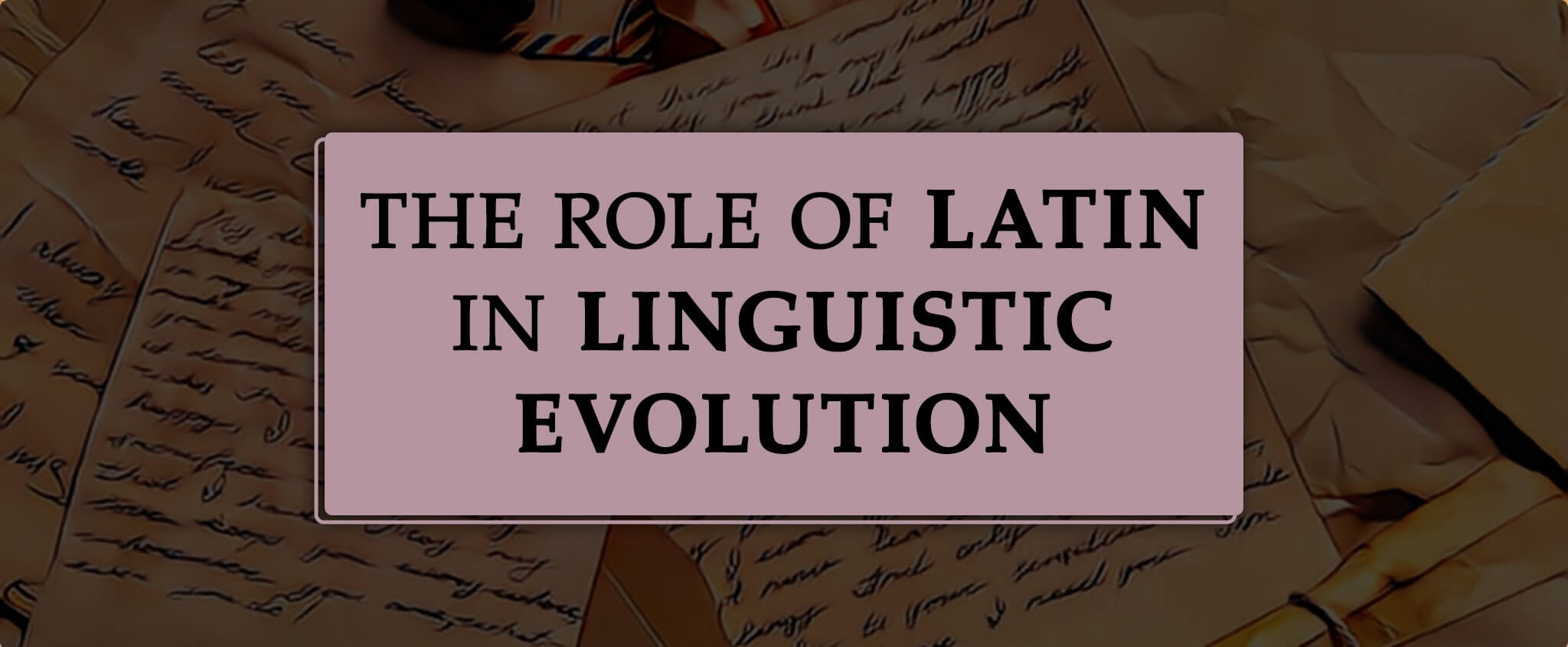The Role of Latin in Linguistic Evolution
Despite being labeled a ‘dead language,’ Latin continues to breathe life into many of the languages we speak today. The influence of Latin in linguistic evolution is particularly notable in English, with many Latin root words, prefixes, and suffixes infiltrating our everyday vernacular. At CCCI, we have journeyed on how Latin has shaped and continues to shape linguistic patterns and structures, serving as a crucial cornerstone in the world of languages. Let us share with you some interesting insights!
Key Takeaways:
- The role of Latin in linguistic evolution is evident in modern-day languages. The language’s history and structure have influenced numerous aspects of speech, including vocabulary, grammar, and syntax.
- The languages influenced by Latin include English, Spanish, French, and Italian, to name a few. Latin has also been a major influence on other Romance languages, such as Portuguese and Romanian.
- The Latin influence on English is especially undeniable. Though from Germanic traditions, other languages, dialects, and scripts have also significantly influenced English.
- The Latin influence on English language is evident in many words, such as those with prefixes “re-” and suffixes “-tion.”
Table of Contents:
- The History of the Latin Language
- The Role of Latin in Linguistic Evolution
- How Latin Influenced Modern Languages
- Languages Influenced By Latin
- CCCI – Professional Translation Services
The History of the Latin Language

The Latin language, a classical tongue belonging to the Italic branch of the Indo-European languages, originates from the area around Rome known as Latium. From around the sixth century BC, it became the official language of the Roman Republic and the Roman Empire. People widely used Latin for various purposes, including administration, scholarly writings, and literature. The significance of the language grew further during the Middle Ages as it served as the lingua franca in matters of education, religion, and administration in Western Europe.
Latin’s earliest known sample, potentially from the 7th century BCE, is a four-word notation etched in Greek letters on a fibula or cloak pin. This instance demonstrates the initial preservation of complete vowels in unstressed syllables, a notable contrast to the vowel reduction seen in later iterations of the language. In the early stages, Latin accentuated the first syllable of a word, which shifted to either the penultimate or antepenultimate syllable in the republican and imperial periods.
Archaic Latin
Originating from the regions surrounding the Tiber River, Latin spread its influence across the entire Mediterranean region of antiquity. Pre-Roman Italy was predominantly inhabited by Italic speakers, with Umbrian speakers situated to the north and Oscan speakers to the south. Many languages, including the non-Indo-European Etruscan language, also existed in the northern areas. As Rome established its foundation and extended its influence over neighboring territories, Latin-speaking Romans borrowed extensively from these neighboring languages. These early borrowings were typically simplistic, everyday words, suggesting a primitive and earthy civilization.
Classical Latin
Classical Latin, characteristic of the Classical period, utilized six distinct cases in the declension process for nouns and adjectives. These were the nominative, vocative, genitive, dative, accusative, and ablative, with remnants of a locative case in certain noun declension classes.
The Classical period witnessed the usage of at least three Latin variations: the formal written Latin, the Classical oratorical Latin, and colloquial Latin, the vernacular language of the average speaker. As spoken Latin evolved, it increasingly deviated from the established Classical grammar, pronunciation, and lexicon norms.
Numerous classical and early post-classical inscriptions serve as our primary sources for spoken Latin. However, in the post-third century CE, several texts emerged in a popular style termed Vulgar Latin. Late Latin literature emerged with notable works from such writers as St. Jerome and St. Augustine during the late fourth and early fifth centuries. Latin then progressed in two directions. It evolved into the modern Romance languages and dialects based on regional spoken forms.
Simultaneously, it continued in a somewhat standardized format throughout the Middle Ages as the language of religion and academia, profoundly influencing the evolution of West European languages.
Vulgar Latin
As the reach of Latin extended to vaster territories, local adaptations in pronunciation and use began to proliferate. This broadening in daily and rural employments of Latin facilitated its evolution, often as a reflection of societal behaviors and prevalent customs. It gave birth to “Vulgar Latin,” which was influenced by local dialects and eventually evolved into the Romance languages.
During the Carolingian Renaissance, Charlemagne, an illiterate French king, embarked on a mission to resurrect Latin in its Classical form, with special emphasis on pronunciation. Despite his initiatives, the reform was short-lived.
Latin eventually became distinct from other “daughter” once mutually intelligible languages. By the last decades of the seventh century and the first half or two-thirds of the eighth century, due to intralinguistic processes, especially certain phonetic changes in the spoken language of Frankish Gaul, and considering Charlemagne’s efforts, the illiterate or barely literate Romanized inhabitants of the country were unable to understand the oral recitation of written without assistance.
Latin then yielded to its daughter languages and was relegated as the language of science, law, and learning for the upcoming centuries. The language was gradually displaced in spoken form between 400-700.
The Role of Latin in Linguistic Evolution
Latin’s influence on linguistic evolution is extensive and far-reaching. Predominantly remembered as the language of the Roman Empire, Latin has profoundly shaped many modern languages, particularly in the West. The transformation from Latin to these languages wasn’t abrupt but gradual over centuries.
These languages retained core elements of Latin, including vocabulary and grammar structures, while developing unique features. The Latin language eventually evolved into a group of dialects now referred to as the Romance languages, French, Spanish, Italian, Portuguese, and Romanian, to name a few.
How Latin Influenced Modern Languages

Aside from agriculture, being a soldier was another significant occupation in ancient Rome. The widespread influence of the Roman language, Latin, across Latium primarily resulted from the Romans’ proficiency in these two fields. It led to Latin “islands” forming within regions speaking other languages.
These islands maintained relations with the Roman capital while engaging in trade and social activities with their non-Roman counterparts. Rome’s expansion led to the extinction of several languages, with only vestiges of these occasionally appearing in ancient Roman literature as pieces of vocabulary.
Several centuries post-Christ, late Latin emerged as a language on par with Greek in various domains, from literature and philosophy to science and theology. Despite the downfall of the Roman Empire, Latin persisted. It remained a language of scholarly discussions and educated discourse, even though it had ceased to be a mother tongue for anyone.
Latin maintained its status as the language of research and philosophy in Europe up to the early 19th century, particularly in several Central European nations.
Languages Influenced By Latin
Latin’s influence is evident in the evolution of Italian, Spanish, Portuguese, French, Romanian, and Catalan. Latin, the lingua franca in the Catholic Church, remains integral to the religious legacy of Western Christianity. Vulgar Latin’s words later diffused into English, German, and Dutch, which accounts for their striking similarities. Spanish and French also exemplify Latin’s influence.
While Spanish retains many words from Vulgar Latin, over half of French vocabulary stems from this historical era. Latin’s impact extends to grammar, with concepts of noun gender and verb conjugation in many European languages derived directly from Latin. The Latin influence on English is also undeniable.
While English, an internationally recognized language, is rooted in the Germanic tradition, it’s important to acknowledge that it also carries influences from other languages, dialects, and scripts. The Latin connection, for instance, is especially prominent in numerous English words, such as “mutilus,” which, in English, means “mutilate,” “mutilation,” or mutilate. Interestingly, the English word “influence” has also its roots in the Latin or Romance word “influentia.” Because of the Latin influence on English language, we can find many more examples of Latin-origin words in modern English.
Pro Tip: There are many ways to know if an English word is of Latin origin. For instance, you can check its etymology in a dictionary or look at the word’s spelling and pronunciation: words that begin with “re-” or end with “-ion,” for example, are likely to be Latin-derived.
CCCI – Professional Translation Services
In conclusion, the role of Latin in linguistic evolution makes it a living dead language. Now that we have delved into the fascinating intricacies of Latin’s enduring legacy, let us return to this language’s modern and practical application. CCCI offers various linguistic solutions for businesses and individuals. Our experienced translators are well-versed in languages influenced by Latin and various other languages, ensuring accurate translations that capture the nuances and complexities of each language.
At CCCI, we recognize the importance of understanding the evolution and influence of languages, so we strive to provide professional specialized translation services that not only bridge communication gaps but also preserve linguistic legacies. So next time you encounter a Latin origin word in your daily life, take a moment to appreciate its journey from ancient Rome to modern English. And if you ever need translations, remember CCCI, where language meets evolution. Contact us today!






